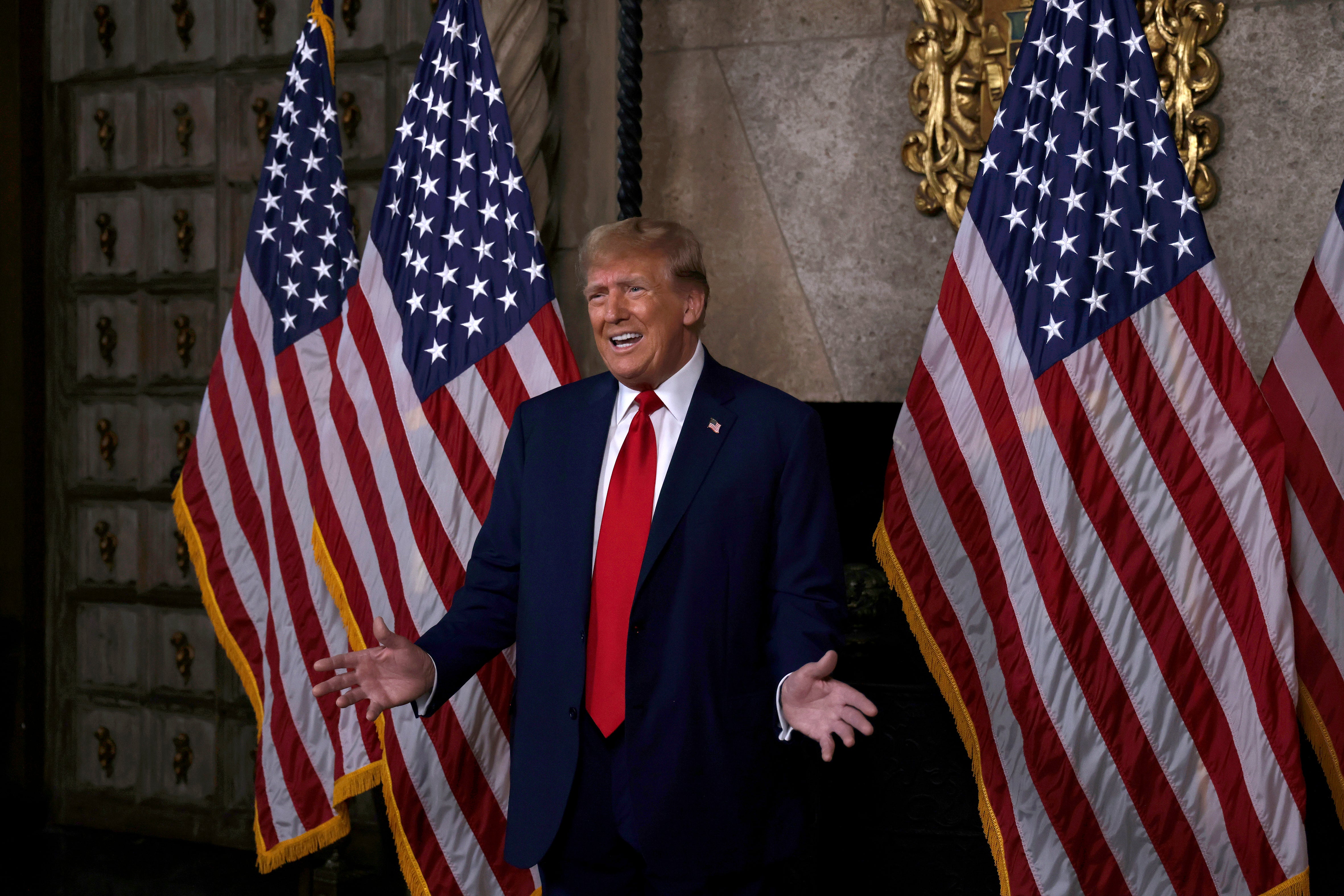Can Trump clinch the Republican presidential nomination on Super Tuesday?
Former president on course to be party’s election candidate once again – unless Nikki Haley can stage a huge comeback against the odds
Your support helps us to tell the story
From reproductive rights to climate change to Big Tech, The Independent is on the ground when the story is developing. Whether it's investigating the financials of Elon Musk's pro-Trump PAC or producing our latest documentary, 'The A Word', which shines a light on the American women fighting for reproductive rights, we know how important it is to parse out the facts from the messaging.
At such a critical moment in US history, we need reporters on the ground. Your donation allows us to keep sending journalists to speak to both sides of the story.
The Independent is trusted by Americans across the entire political spectrum. And unlike many other quality news outlets, we choose not to lock Americans out of our reporting and analysis with paywalls. We believe quality journalism should be available to everyone, paid for by those who can afford it.
Your support makes all the difference.Donald Trump looks all but certain to secure the Republican presidential nomination for 2024 – unless challenger Nikki Haley can pull off the mother of all upsets on Super Tuesday, when 15 states and one US territory go to the polls.
While that looks highly unlikely going into the big day, the former United States ambassador to the United Nations did find a glimmer of hope on Sunday when she notched up her first win of the campaign in the Washington DC primary, scoring 62.9 per cent of the vote to Mr Trump’s 33.2 per cent.
Even so, when it comes to the delegate count, Ms Haley has a mountain to climb.
Of the 2,429 Republican Party delegates available throughout primary season, Mr Trump currently has 273 after winning the Iowa, US Virgin Islands and North Dakota caucuses and the New Hampshire, Nevada, South Carolina, Michigan, Idaho and Missouri primaries.
Ms Haley lags behind with 43 while former candidates Ron DeSantis and Vivek Ramaswamy picked up nine and three respectively in Iowa before they dropped out to endorse Mr Trump.
Another 865 delegates are up for grabs on Super Tuesday, representing about 36 per cent of the GOP total. So does this mean that Mr Trump can clinch the Republican nomination on Super Tuesday?
In short, no. Even if he secures a clean sweep that would only take him to 1,138 delegates, 77 shy of the 1,215 majority he needs to claim an all-out victory.
Winning American Samoa’s Republican caucus on Friday 8 March would hand him a further nine – still not enough – but he could finally seal the deal on Tuesday 12 March when Georgia, Mississippi and Washington hold their primaries and Hawaii its caucus.
Winning all of those would hand him another 161 delegates and take his total sailing past the magic number to 1,308, setting him on course for the 2020 rematch with Joe Biden for which the American electorate appears to have so little appetite.
However, should Ms Haley stage an almighty comeback and prevent the inevitable from happening, Mr Trump would still have further opportunities to pick up large numbers of delegates on Tuesday 19 March or Tuesday 2 April, on both of which dates five more states hold their Republican primaries, serving up another 350 and then 195 delegates respectively.

The Republican primary race does not conclude until Tuesday 4 June so, were the race somehow to remain open, there would still be plenty more contests for the duo to fight it out over the next three months.
Furthermore, even if Mr Trump does hit the delegate requirement at the earliest opportunity on 12 March, he will still not officially become the Republican presidential nominee until his coronation is held at the Republican National Convention, which is this year being held in Milwaukee, Wisconsin, from 15 to 18 July.
It is also worth bearing in mind that, while Super Tuesday is hugely significant, a strong performance from a candidate does not necessarily translate to a presidential election win in November: Democrat John Kerry dominated the day’s primaries 20 years ago but ended up losing out to Republican George W Bush nationally.

Join our commenting forum
Join thought-provoking conversations, follow other Independent readers and see their replies
Comments